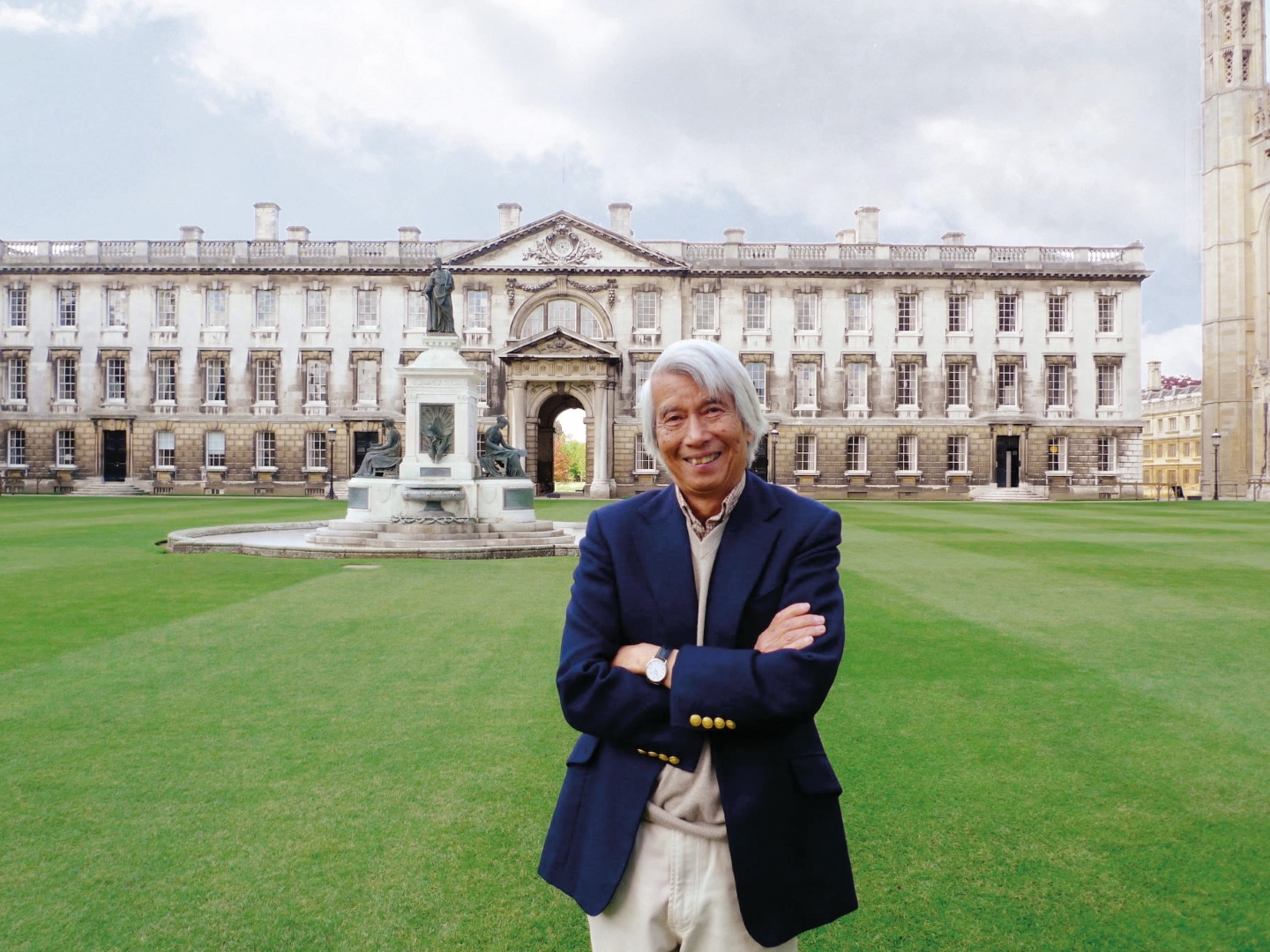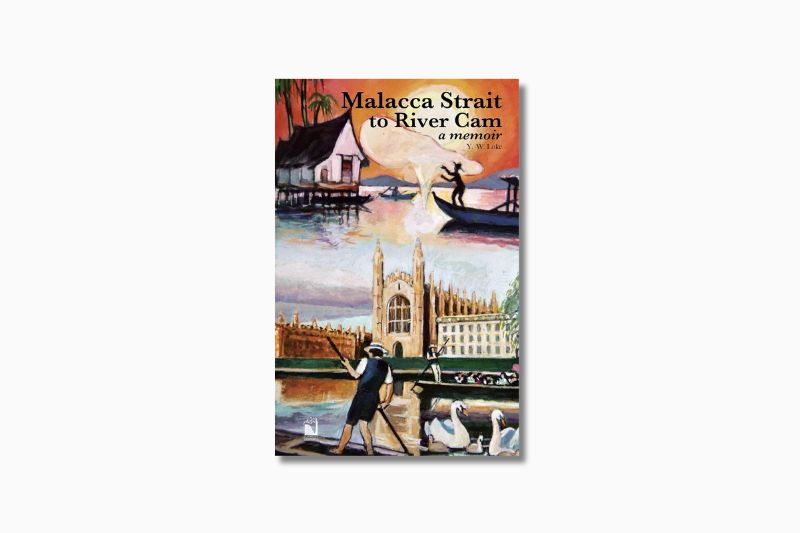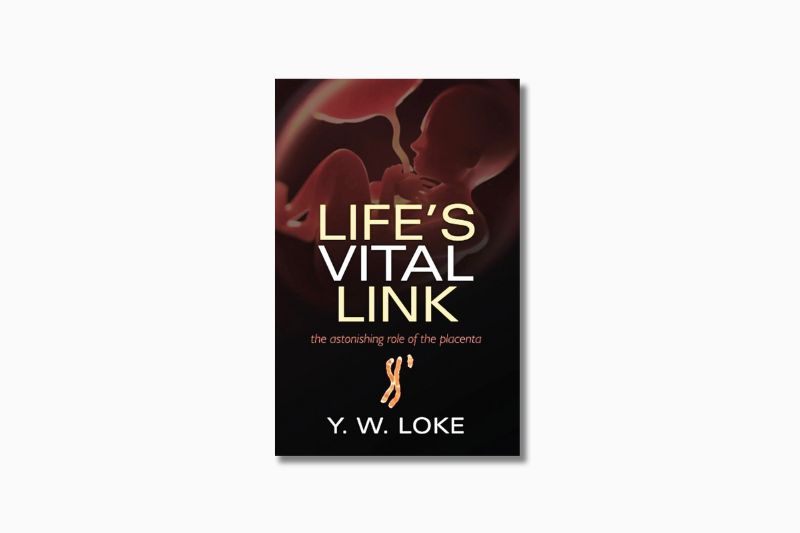
After his retirement, Loke, who holds doctorates in medicine and science, created the Centre for Trophoblast Research to encourage future generations to study the placenta, his research interest (Photo: Charlie Loke Yung Wai)
Prof Charlie Loke Yung Wai believes luck has played the greatest part in shaping his life. “All the important things in my life have been determined by chance,” he says.
The don was expected to join the company founded by his grandfather Loke Yew (1845-1917), the Chinese migrant who made his fortune from tin and rubber in British Malaya, but chose teaching and research instead — a first in his family. With that, he tore up the script intended for him and rewrote his own story in academia.
“An academic life suits me. What I do sits comfortably with who I am,” says Loke, borrowing a line from English novelist Samuel Butler: “Every man’s work is always a portrait of himself”.
A portrait of him by artist Anna Paik was unveiled on Sept 23, 2023, at the University of Cambridge, where he did undergraduate studies in the early 1950s before starting his academic career as an assistant lecturer in its Department of Pathology in 1967. Three years earlier, during dinner in King’s College, his former lecturer Prof Kendal Dixon had told him about the position coming up and asked if he would like to apply.
Loke did, thinking it would be a fun, temporary interlude — three years with a possible extension of two, and setting exam questions instead of answering them — before returning to Malaysia. But that role led to 35 years of scientific research in Cambridge, “a serene, protected space, with its own rhythms”.
In 1973, he was elected college lecturer in pathology and director of studies in medical sciences. That same year, he became a fellow of King’s College, crossing the line from alumnus to member of the governing body.
“In Cambridge, you do not apply to be a fellow of a college. You wait to be invited. Gaining a fellowship there is a much-coveted glittering prize,” he writes in his memoir, Malacca Strait to River Cam. He considers himself lucky to be in the right place at the right time, in taking over when Dixon retired.
After his own retirement in 2002, Loke, who holds doctorates in medicine and science, created the Centre for Trophoblast Research to encourage future generations to study the placenta, his research interest. In September this year, the CTR was renamed the Loke Centre for Trophoblast Research in honour of his vision and lifelong contribution to placental biology and in recognition of his family’s support.
centre_for_trophoblast_research_named_in_honour_of_professor_charlie_y.w._loke.jpg

He is grateful for family funding as well because it enabled him to chase his dream. “Academia is intellectually exciting but financially unrewarding. Inherited wealth is often regarded as somewhat unfair. But it is part of life’s lottery,” says Loke, born in Kuala Lumpur on Dec 16, 1934, to Eileen Mai-Leng Loke (Leong) and Loke Wan Yat, the son of Loke Yew and his third wife, Lim Shuk Kwei.
He admits he is sometimes embarrassed the funds he donates come from inherited wealth and not the sweat of his brow. But an entrepreneur once told him it does not matter where the money comes from. “It is what you do with it that matters.”
Loke’s mother’s family are Straits Chinese from Penang and he spent his early childhood on the island, studying at St Xavier’s Institution, next door to where he lived. He bred chickens and ducks and had a pet mongoose to protect him from snakes. Like a tropical Huckleberry Finn, he whiled away the hours along the shore or fished using a home-made rod at the sea wall.
As a boy he devoured comics brought in by a ship of the Blue Funnel Line. To beef up his muscles, he bought a “Bullworker”, as advertised in the comic books, on the promise that he could work with it and develop a body like American bodybuilder Charlie Atlas. It did not happen and “today, I remain a puny adult”, he says.
In 1949, he set sail for boarding school in England. Having learnt to play tennis proficiently in Penang, he would go on to captain the team in Cambridge, where he also played hockey. “I was never bullied at school. Perhaps being good at games saved me.”
Loke’s memoir covers 80 years of his life, from childhood to the Japanese invasion to scientific research to, at the time of writing, being “locked” in a spacious Georgian house surrounded by 16 acres of meadow and woodland because of Covid-19.
melaka_strait_to_river_cam.jpg

It is not a confessional tale, he says. “The theme is a journey to academia from East to West and I have left out all those events that are not relevant to my story.”
Malacca Strait to River Cam, which he began writing during the pandemic, took five years from ideation to publication. He did not keep a diary but the memories came flooding back once he started. He quips about getting off lightly in the editorial process. “My editor said she had to practically rewrite the entire narrative in some manuscripts.”
Finding a publisher was another example of chance at work. Over lunch one day at King’s — where he is a life fellow — he met colleague Prof Alan Macfarlane, who had set up Cam Rivers Publishing House. Loke sent him an abstract and a sample chapter and got this in reply: “Charlie, this is just the kind of story we like to publish.”
The author devotes erudite chapters to his work on the placenta, which joins a baby to the mother in the womb, and its role in the immunological paradox of pregnancy. His 2013 book, Life’s Vital Link (Oxford University Press), dwells on the development of this organ, “a pivotal event in evolution” because without it, humans would still be laying eggs instead of giving birth to live offspring!
There are parallels between this scientist and his research subject. The placenta, positioned between baby and mother and connected to both, has adapted to live between these genetically distinct individuals. Similarly, he is at ease in the contrasting worlds of Malaysia and Britain.
Loke resides with his wife Penny in Cambridge, where the scholastic world offers “a life of the mind [and] you are constantly engaged in intellectual pursuits of one kind or another. I find this very stimulating”. They have four daughters. But he retains a home in Malaysia and returning is “still a dream”.
What is the Asian part that has stayed with him?
“This is a difficult existential question. Which is my authentic self and which, my adopted self? It depends on how others see me. When I am back in Malaysia, I feel very comfortable with my friends and they seem comfortable with me. I must have retained some residual Asian traits to ease our interaction. Perhaps my Asian core has remained intact with a tinge of superficial covering of Anglicised foreignness.”
His laboratory days are over but Loke continues to reflect on the placenta, modern technological interventions that affect how humans reproduce, and the brave new world of female reproduction. Do issues like gene-edited babies and women giving birth to their own siblings and grandchildren keep him awake?
lifes_vital_link.jpg

“I am concerned about how science has taken over from Nature, especially in the field of reproduction. Once the tools are available, it is difficult to control. Ultimately, it is up to governments and public opinions to keep that in check.”
What he is certain about is that the Loke CTR will continue to advance knowledge about the placenta and encourage young investigators to do research on it.
“We must nurture the next generation because they are the ones who will make the critical discoveries in future. This is already happening. At scientific meetings, I am impressed by the rich array of new data emerging from the centre, some of which I no longer understand. This is good news because it means the field is moving very fast.”
Loke peppers his memoir with quotes to emphasise various observations and comments. “Yes, I love reading, especially stories I can relate to. I am a fan of Tan Twan Eng.”
He includes notes from former students who remember his classes and express gratitude for guidance. Is he one of those born to teach?
“I don’t know what makes a good teacher. Perhaps patience is a necessary skill and the ability to explain complex problems clearly. I have never taught schoolchildren. My only experience is at university level with undergraduates. They are a bright lot in Cambridge, which makes my job easy, and a joy to teach.”
Loke will be 90 next month. Is he or his family preparing to celebrate?
“Birthday parties are for the young. When you reach 90, it is best not to be reminded of the number. My family is secretly planning something. I hope it is not too elaborate.”
As for whether there will be another book, he says, “I would like to do another. But at my age, I am conscious of the passage of time.”
Each year, King’s publishes a list of fellows according to age and seniority, with the oldest heading the list. “I call this the ‘Death List’. In 2021, I noted with alarm that I now occupy the top spot!” he writes.
Has he ever wondered what would have happened had he followed the script intended for him?
“I have never looked back on the path I have chosen. It might come across as annoyingly smug, but I really do not have anything more to tick off on my ‘to-do’ list. Regret is a futile emotion — best avoided.”
'Malacca Strait to River Cam' is available on amazon.co.uk.
This article first appeared on Dec 11, 2024 in The Edge Malaysia.


